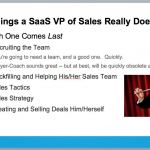- Like
- SHARE
- Digg
- Del
- Tumblr
- VKontakte
- Flattr
- Buffer
- Love This
- Save
- Odnoklassniki
- Meneame
- Blogger
- Amazon
- Yahoo Mail
- Gmail
- AOL
- Newsvine
- HackerNews
- Evernote
- MySpace
- Mail.ru
- Viadeo
- Line
- Comments
- Yummly
- SMS
- Viber
- Telegram
- JOIN
- Skype
- Facebook Messenger
- Kakao
- LiveJournal
- Yammer
- Edgar
- Fintel
- Mix
- Instapaper
- Copy Link
The business plan is an undeniably critical component to getting any company off the ground. It’s key to securing financing, documenting your business model, outlining your financial projections, and turning that nugget of a business idea into a reality.
In an era where more than 50% of small enterprises fail in their first year, having a clear, defined, and well thought-out business plan is a crucial first step for setting up a business for long-term success.
Business plans are a required tool for all entrepreneurs, business owners, business acquirers, and even business school students. But … what exactly is a business plan?
In this post, we’ll explain what a business plan is, list the reasons why you’d need one, and identify different types of business plans.
What is a Business Plan?
A business plan is a documented strategy for a business that highlights its goals and its plans for achieving them.
Business plans outline a company’s go-to-market strategy, financial projections, market research, business purpose, and mission. The business plan is also a prominent tool used to secure investors and financing for a business.
Business Plan Template
 Working on your business plan? Try using our Business Plan Template. Pre-filled with the sections a great business plan needs, the template will give aspiring entrepreneurs a feel for what a business plan is, what should be in it, and how it can be used to establish and grow a business from the ground up.
Working on your business plan? Try using our Business Plan Template. Pre-filled with the sections a great business plan needs, the template will give aspiring entrepreneurs a feel for what a business plan is, what should be in it, and how it can be used to establish and grow a business from the ground up.
Purposes of a Business Plan
Chances are, someone drafting a business plan will be doing so for one or more of the following reasons:
1. Securing financing from investors.
Since its contents revolve around how businesses succeed, break even, and turn a profit, a business plan is primarily used as a tool for sourcing capital. This document is an entrepreneur’s way of showing potential investors and/or loaners how their capital will be put to work and how it will help a business thrive.
All banks, investors, and venture capital firms will want to see a business plan before handing over their money, and investors typically want a 20-25% ROI from the capital they invest in a business.
Therefore, these investors need to know if – and when – they’ll be making their money back (and then some). Additionally, they’ll want to read about the process and strategy for how the business will reach those financial goals, which is where the context provided by sales, marketing, and operations plans come into play.
2. Documenting a company’s strategy and goals.
A business plan should leave no stone unturned.
Business plans can span dozens or even hundreds of pages, affording their drafters the opportunity to explain what a business’s goals are and how the business will achieve them.
To show potential investors that they’ve addressed every question and thought through every possible scenario, entrepreneurs should thoroughly explain their marketing, sales, and operations strategies – from acquiring a physical location for the business to explaining a tactical approach for marketing penetration.
These explanations should ultimately lead to a business’s break even point supported by a sales forecast and financial projections, with the business plan writer being able to speak to the why behind anything outlined in the plan.
3. Legitimizing a business idea.
Everyone’s got a great idea for a company – until they put pen to paper and realize that it’s not exactly feasible.
The business plan is an aspiring entrepreneur’s way to prove that a business idea is actually worth pursuing.
As entrepreneurs document their go-to-market process, capital needs, and expected return on investment, entrepreneurs likely come across a few hiccups that will make them second guess their strategies and metrics – and that’s exactly what the business plan is for.
It ensures an entrepreneur’s ducks are in a row before bring their business idea to the world and reassures the plan’s readers that whoever wrote the plan is serious about the idea, having put hours into thinking of the business idea, fleshing out growth tactics, and calculating financial projections.
4. Getting an A in your Business class.
Speaking from personal experience, there’s a chance you’re here to get business plan ideas for your Business 101 class project.
If that’s the case, might we suggest checking out this post on How to Write a Business Plan – providing a section-by-section guide on creating your plan?
Types of Business Plans
1. Startup Business Plan
Arguably the most common type of business plan, a startup business plan is used for brand new business ideas. This plan is used to take a business concept and lay the foundation for its eventual success.
The biggest challenge with the startup business plan is that it requires its writer to completely start from scratch. Startup business plans start with a blank word document, and before they are finished, need to reference existing industry data and explain unique business strategies and go-to-market plans.
2. Business Acquisition Plan
Investors will still want to see a business plan to acquire funding to purchase an existing business in order to see how its new owner will run the business.
What will change and what will stay the same under new ownership, and why? Additionally, the business plan should speak to what the current state of the to-be-acquired business is, and why it’s up for sale.
For example, if someone is purchasing a failing business, the business plan should explain why the business is being purchased and what the new owner will do to turn the business around, referencing previous business metrics, sales projections after the acquisition, and a justification for those projections.
3. Business Repositioning Plan
When a business wants to save itself, reposition its brand, or try something new, some CEOs or owners will want to develop a business repositioning plan.
This plan should:
- Acknowledge the current state of the company.
- State a vision for the future of the company.
- Explain why the business should (or must) be repositioned.
- Outline a process for how the company will adjust.
Companies planning for a business reposition do so – proactively or retroactively – due to a shift in market trends and customer needs. For example, Pizza Hut announced a plan to drastically overhaul its brand last year, as it sees the need to shift from dine-in to delivery – a decision resulting from observing years of industry and company trends and acknowledging the need to reposition itself for the future of its sector.
4. Expansion Business Plan
Building onto a successful business venture with another location typically requires its own business plan, as the project may require a new location, focus on a new target market, and demand more capital.
Fortunately, an expansion business plan allows its writers to reference sales, revenue, and successes from any previous location(s). However, as great as a reference as these points can be, it’s important to not be too reliant on them, since it’s still a new business that could succeed or fail for a myriad of reasons.
Getting Started With Your Business Plan
At the end of the day, a business plan is simply an explanation of a business idea and why it will be successful. The more detail and thought you put into it, the more successful your plan – and the business it outlines – will be.
If you need help starting your business plan, download Download HubSpot’s Free Business Plan Template and fill out the sections to meet your business idea’s concept.
Originally published Aug 14, 2020 7:00:00 AM, updated August 14 2020




